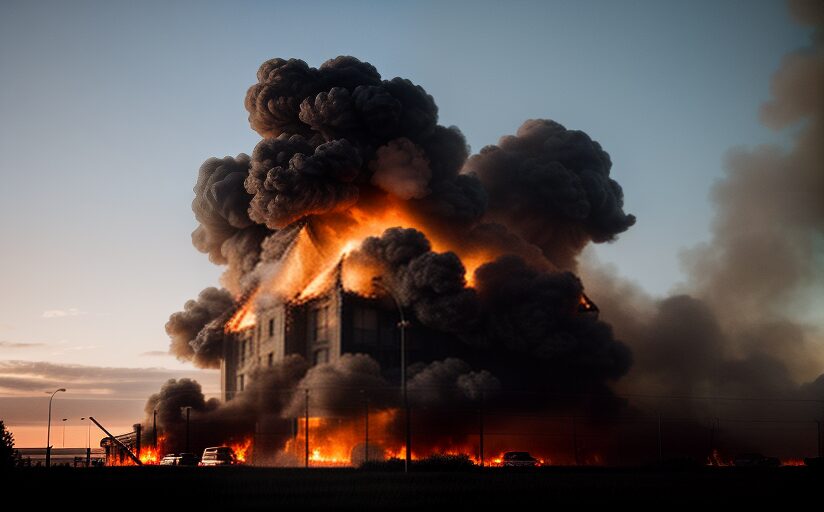Writing
Cloud and Fire
by Cantor Sally L. Neff | Mar 14, 2024 | Exodus
“For over the Tabernacle a cloud of G-d rested by day, and fire would appear in it by night, in the view of all the house of Israel throughout their journeys.” Thus ends the book of Exodus, and our Torah portion, Parshat P’kudei.
Cloud and fire are powerful symbols for the Divine presence. A cloud can feel cool, safe, concealing. A cloud contains water – a substance absolutely essential to life. At the same time, clouds can be threatening and frightening. Heavy clouds and fog can obscure our vision and can portend dangerous storms.
A fire is necessary for warmth. We must have it to cook our food. It lights up the night and keeps us safe from predators. On the other hand, fire will burn us if we get too close. It can destroy our homes, businesses, and even our cities.
A cloud, lit up by the sunrise or sunset (or volcano or any fire) can look like a flame. And the smoke from a fire can appear like a cloud – especially when the fire has just been extinguished by water.


These symbols represent both the essential necessities for life, and the possibilities of death and destruction. They blur one into the other. What does it mean that these symbols indicate G-d’s presence that we are meant to follow in the wilderness?
I think that the cloud and the fire can be read as lessons against extremism. You cannot enter the Tent when the cloud or fire occupy it. “Moses could not enter the Tent of Meeting, because the cloud had settled upon it and the Presence of G-d filled the Tabernacle.” Furthermore, you could not journey until the cloud had lifted. “When the cloud lifted from the Tabernacle, the Israelites would set out, on their various journeys;”
Clouds and fire, observed from a safe distance, offer essential elements for sustaining life, but get too close and they will consume you. We cannot get inside G-d and maintain our lives. Balance forms the foundation of our existence. Combining a grounded lifestyle with spirituality brings vitality to life, but spirituality alone can be all encompassing and stifling. As Reform Jews, we take this to heart, and we avoid zealotry and extremism, but sometimes we forget the soul-sustenance that faith and tradition can provide.
Our Torah teaches us to follow and seek the cloud and the fire – the consistent presence of G-d, but not to be consumed by them. If we follow them, resting when it is time to rest, and moving forward in the right time – we will have the strength to face the journey to come towards the Promised Land.
3 Nisan – Cleanse
Mar 23, 2015 | Judaism
To do list - Cleanse: Clean. Make a menu plan...
2 Nisan – Bless
Mar 22, 2015 | Judaism
As a child, I found the formulation of blessing...
1 Nisan – Begin
Mar 21, 2015 | Judaism
I love New Year’s. I love the idea of a fresh...
Lech L’cha
Oct 11, 2013 | D'var Torah, Genesis
G-d said to Avram, “Lech L’cha.” “Go forth. Go...
Radio Silence
Oct 2, 2013 | Uncategorized
This blog has been quiet for quite some time....
My Guest Post
Aug 7, 2012 | D'var Torah, Judaism, Music
I was invited to do a guest post for the URJ's...
Tisha B’Av
Aug 1, 2012 | D'var Torah, Judaism
Hello blog readers. I know it’s been an age… I...
Making Holy Space and Space for the Holy
Feb 24, 2012 | D'var Torah, Exodus
The following is the D’var Torah that I...
It’s a Knitzvah
Jan 20, 2012 | Knitting, Music
Our Hebrew high school offers core classes and...
The Eighth Candle
Dec 27, 2011 | Judaism
Today’s synonym for light is (last, but...